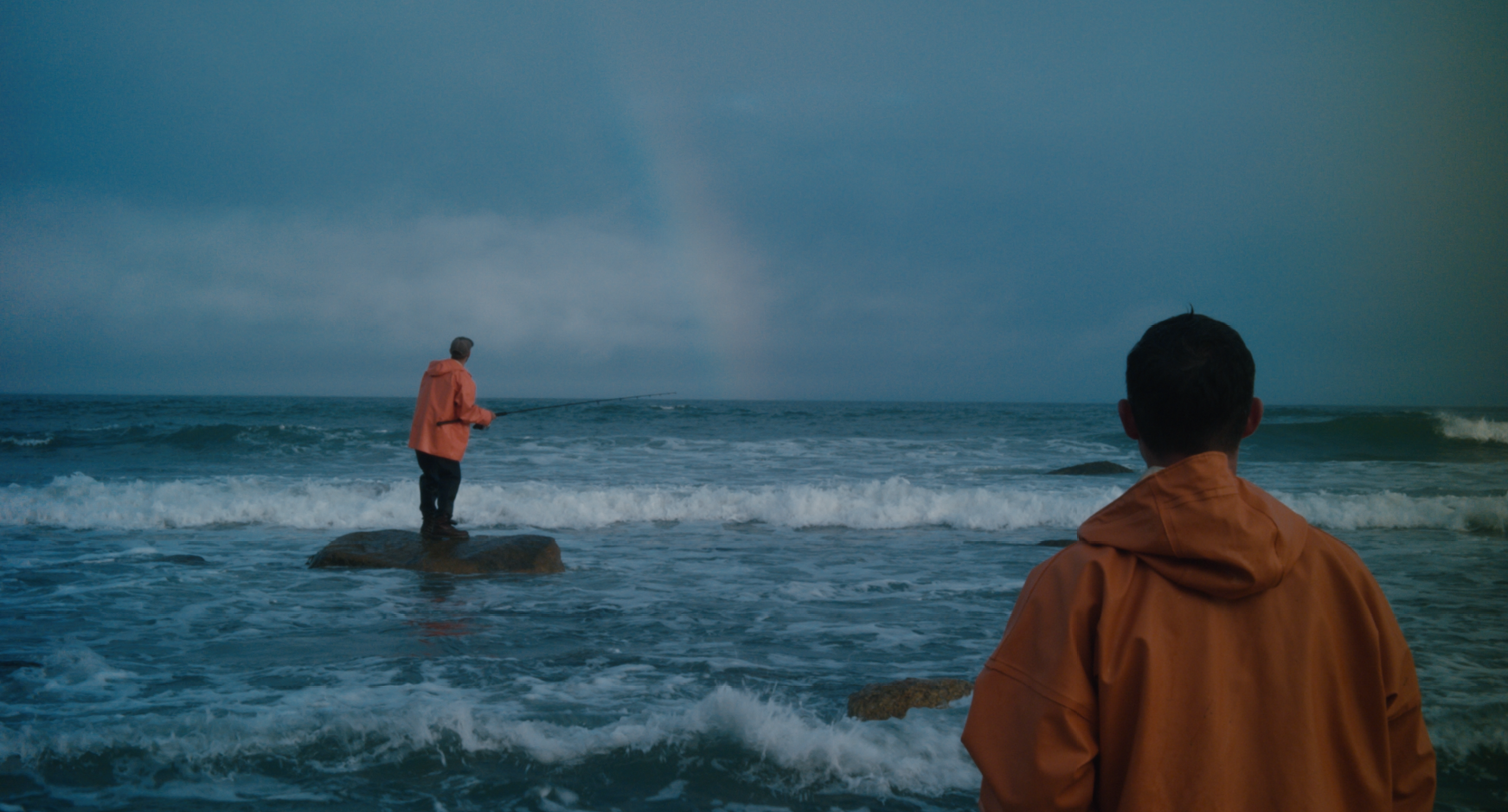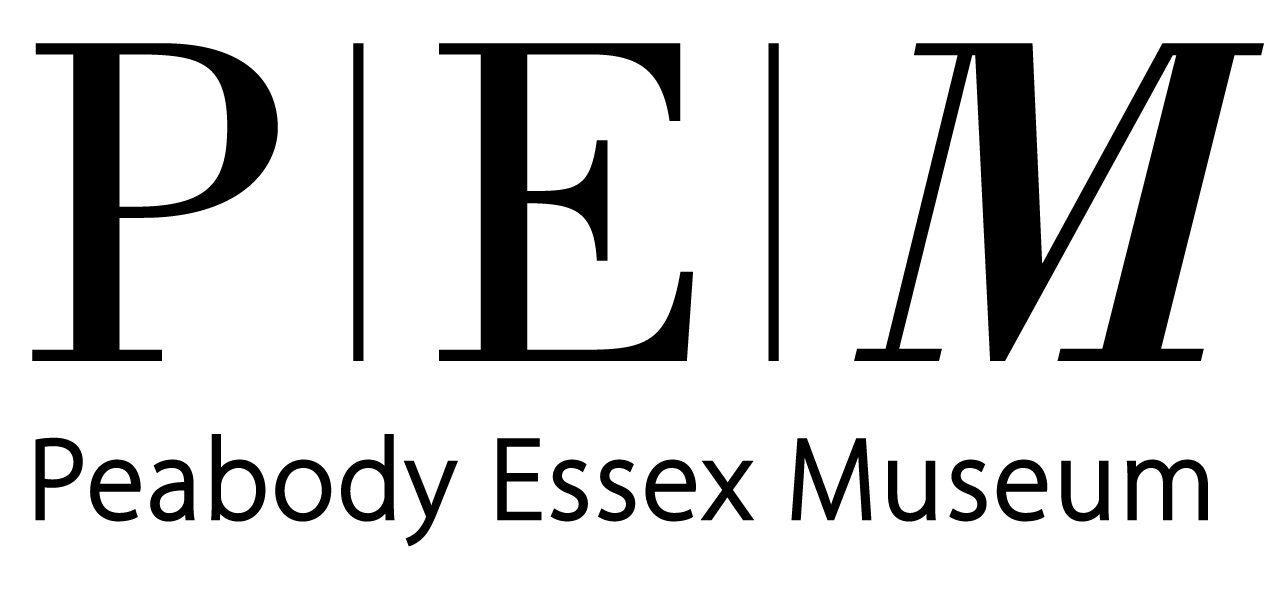Twenty years after a beloved local fisherman, Richie Madeiras, goes missing off the shores of Martha’s Vineyard, a distant cousin finds Richie’s kind, indelible spirit in the stories of family, friends, and the sweeping sea which has defined their lives. A stirring, lyrical journey swims beneath the brusque, reticent surface of this New England fishing community.
SFF Selection Committee member Shelley Sackett caught up with Charles Frank, the director of SOMEWHERE WITH NO BRIDGES, ahead of the film's premiere during Week 1 (Friday, July 10 - Thursday, July 16) of our virtual Salem Film Fest.
SAS: How did the idea for SOMEWHERE WITH NO BRIDGES first start?
CF: The majority of my extended family works and lives on Martha's Vineyard year-round and I've always felt compelled to make a movie there. Honestly, when we began this project, we just started filming without a very clear vision. In the early stages of the film, we had this loose idea to capture the absurd influx of tourism (around 100,000 additional people come to the island in the summer) in stark contrast to the everyday lives of the locals in the off-season. We wanted to dig beneath Martha's Vineyard's reputation for being a playground for the wealthy and celebrate the people that keep the island running and are more connected to it as a deeply spiritual, magical place.
There are hints of that original idea in the final piece, but it's now a very different film. I never like having too distinct of a concept going into any project- I prefer to be taken away by whatever feeling we discover in a place. To me that's the ultimate luxury as a filmmaker - a luxury I feel very fortunate to have indulged in.
SAS: Could you walk us through the process from initial spark to finished film? Did your focus change as the film progressed?
CF: For months, the cinematographer (Jeff Melanson) and I roamed the island aimlessly, filming random scenes with locals. There was a period of time where our editor (Nicollette Bovat) would just cut these disparate scenes and store them away for later use. While we were filming these vignettes, my cousin Richie (a beloved fisherman who went missing at sea when I was a child) would naturally come up in conversation. In fact, it seemed like everyone we ran into had a story to tell. My father has been telling me stories about Richie my whole life, but I had never quite grasped the gravity of his life and death within the island community.
Our decision to make this a film about Richie came pretty late in the game. We started doing interviews and collecting home video after we had already essentially completed filming. The most amazing thing to me was the ways in which all these disparate scenes we filmed early on supported the stories and sentiments we later captured in interviews. I loved making the film kind of backwards like this. I think it allowed for more interesting visual and narrative pairings.
As a quick aside... our cinematographer (Jeff Melanson) was also our composer and he wrote and recorded much of the original score on the island in-between shoot days. You can listen to the Spotify album here.
SAS: What was the biggest challenge in making this film? The biggest reward?CF: The biggest challenge was most certainly making a film about and involving my own family. I was plagued by feelings of guilt, fear and anxiety about overstepping boundaries or dredging up painful memories. That said, I think this emotional struggle is part of what made the project so rewarding. The process of making the movie helped me strengthen and forge entirely new relationships with my family members. I think any creative pursuit that translates into some kind of personal growth like that is worthwhile.
SAS: As a documentary filmmaker, what motivates and inspires you?
CF: I believe documentary storytelling is one of the most powerful mediums to inform and educate audiences about the world's pressing issues. With that in mind, I am particularly inspired by documentaries that manage to do this in subtle, nuanced ways. I appreciate films that create a powerful feeling without needing much exposition; ones that prioritize the telling of relatable, human stories as a way to enact change (HONEYLAND is a supreme example of this in my opinion). There seems to be a rise in this more thematic, lyrical approach to non-fiction storytelling and it is so exciting to me.
Outside of filmmaking, I'm obsessed with author Haruki Murakami. He explores such grand themes with the simplest writing - it's the exact balance I'd love to one day achieve in the films I make.
SAS: What has the audience reaction been so far to the film?
CF: I never really had the chance to know Richie, so I feared and expected the film to disappoint those who were closest with him. I worried I just wouldn't get it right, or that the film didn't spend enough time telling stories about him. This is not a very straightforward biopic, after all. However after sharing it with friends and family, I now realize how silly my thinking was.It seems that no one ever expected it to be this perfect, objective picture of who Richie was. They all just seem happy that I went searching for him - so to speak - and found fragments of who he was and still is on the island. I am so, so excited to share the film at Salem Film Fest with audiences that didn't know Richie. I think they will have an entirely different experience and I cannot wait to hear how it makes them feel!
SAS: What message do you hope viewers take away from the film?
CF: My goal with this film is to show the varied, beautiful, and mystical ways that one's legacy can live on. I hope this film can help audiences feel more connected to someone they've lost or even someone that just feels distant. To me, it's a film about building bridges, even in the places that seem to have none.
SAS: What do you think the importance of documentary film in our daily lives is?
CF: On one end of the spectrum, there are documentaries that deliver such powerful stories of injustice that the most powerful people and institutions are pushed to reform. Those films have the most obvious and arguably the most important role in shaping our society and thus our daily lives.On the other end of the spectrum, there are documentaries that inspire a less obvious, and less definable internal shift. They help us see something previously unseen or feel something previously unfelt. Sometimes it's tough to quantify their impact, but I believe they also play an important role in how we experience our daily lives.
SAS: What's next for you?
CF: I'm currently developing a documentary about a volunteer-based community radio station that's been in operation since 1968. We'll take a look at their storied history, as well as a handful of their unique, present day programs and the people behind them.
SAS: Anything you'd like to add?
CF: One thing I found quite moving while making this film was the level of discomfort that the interviewees (particularly the more reticent fishermen) were willing to endure in order to honor Richie. While I did my best to provide a safe, welcoming space, I imagine that for them, the mere thought of sitting in front of big lights and cameras while being questioned by some young filmmaker probably sounded about as appealing as having their pinky finger severed by a lobster. But they showed up, they sat down, and they spoke from the heart. It makes me tear up just thinking about it.
SOMEWHERE WITH NO BRIDGES screened as part of SFF 2020.







